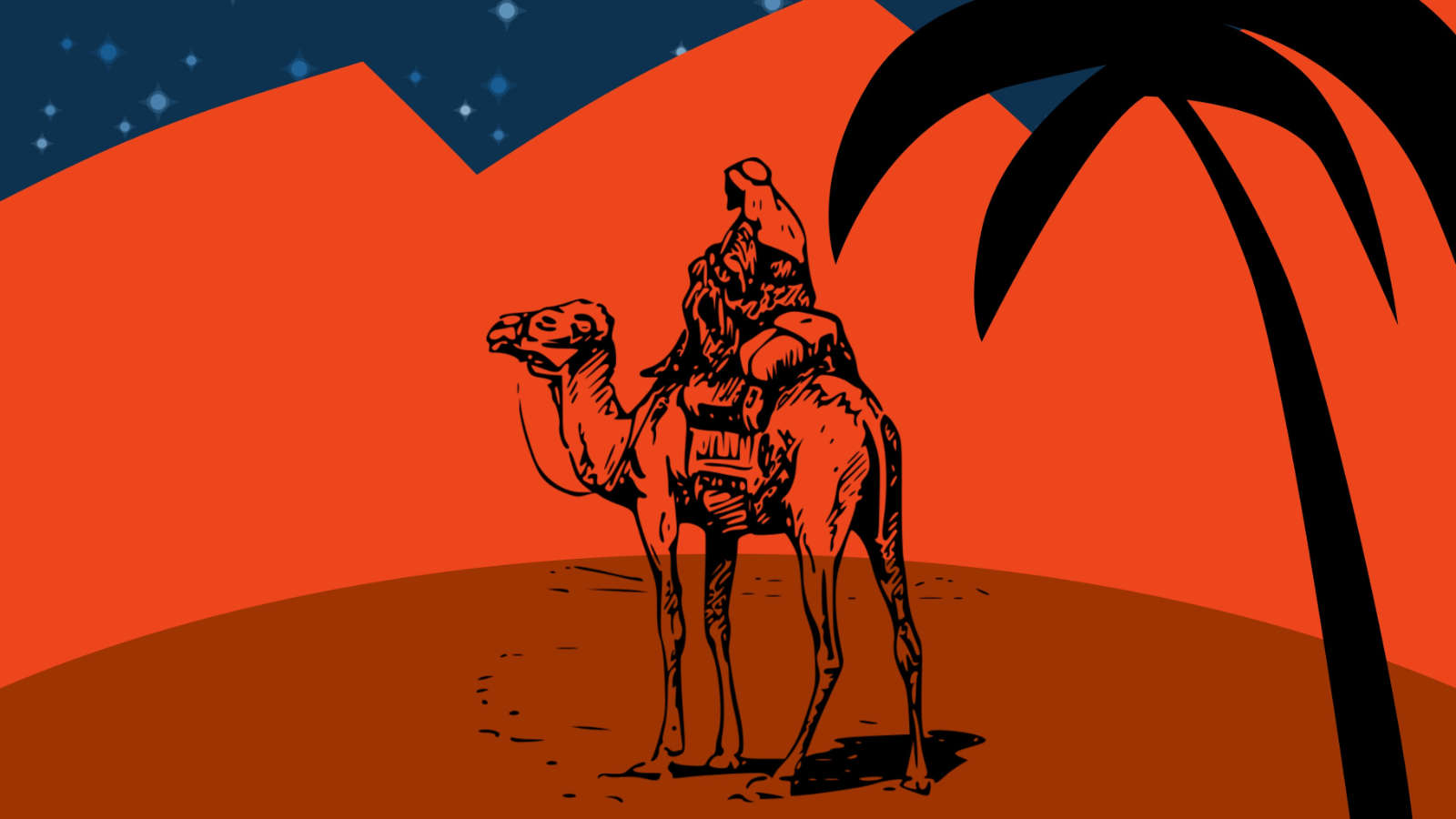A Story About the Nomadic Culture of the Egyptians
The Sinai Desert grew colder as the night deepened. Inside a makeshift tent made of sheepskin, Radin lay curled up on a woolen rug, his stomach growling in long, persistent rumbles. He had thought that closing his eyes and drifting off to sleep would make him forget the hunger, but his empty belly wouldn’t let him rest so easily.
It had been over two days since Radin last had anything to eat. The meager handful of dates he’d picked from an oasis along the way had long since been devoured. Squeezing his eyes shut, Radin tried to recall when exactly he’d lost his way. From childhood until now, he’d traveled this route with his father at least three or four times. According to his memory, after leaving that oasis, it should have taken just one more day to reach the next town. Yet three days had passed, and Radin was still stranded alone in this vast, desolate wilderness. The young man shivered—partly from the cold, partly from hunger, and most of all from the fear that death would come for him before he could find his way back to civilization.
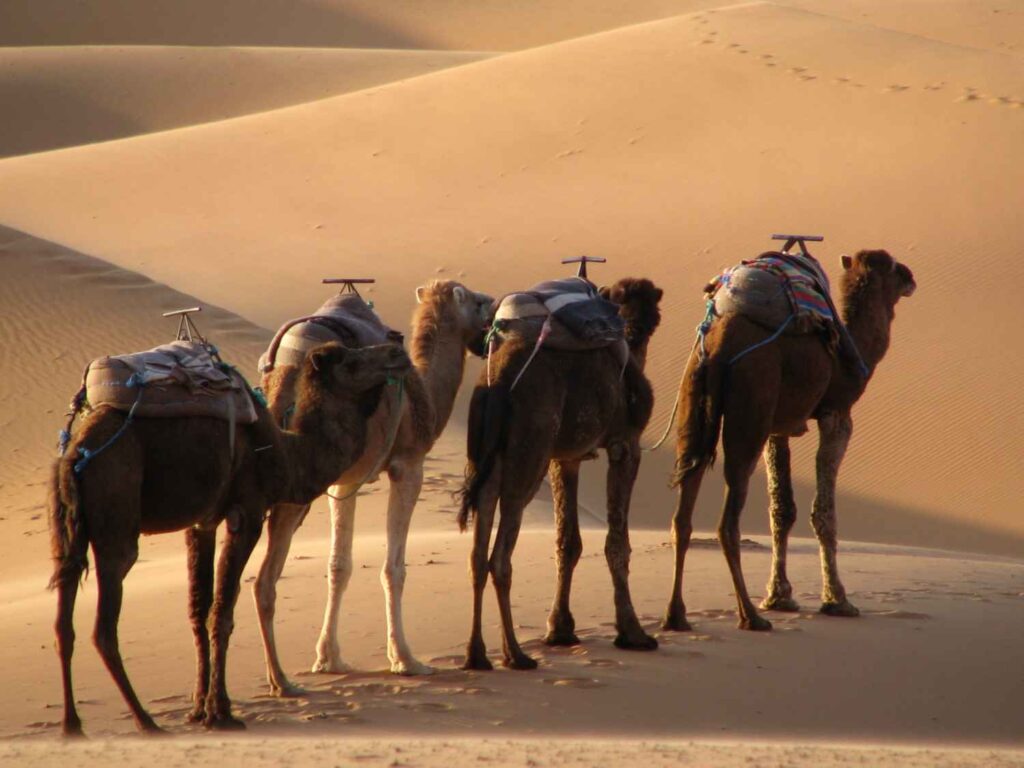
As a member of the Tarabin tribe, Radin had been raised from birth in the nomadic traditions of his Bedouin people, one of Egypt’s largest nomadic groups. Many families in the Tarabin tribe had gradually shifted to a semi-nomadic lifestyle, settling in relatively stable locations and making a living through farming, herding, or, more recently, tourism. Radin was one of the few remaining members of the tribe who still clung to the fully nomadic way of life—wandering from place to place, setting up camp where water pooled during the rains or moving to higher ground and oases during the dry, scorching seasons.
This journey was Radin’s first solo expedition. At eighteen years old, his father had decided it was time for his son to step out on his own and experience the ancestral way of life firsthand. A relatively successful man himself, Radin’s father had long since stopped wandering as much as he once did. He had now settled down permanently, content with tending to his large herd of camels.
Radin’s father had given him the strongest camel in the herd to begin his journey. Radin had pleaded for a second one to carry his tent and supplies, but his father refused. As a nomad, his father wanted him to learn how to survive in the desert with minimal resources.
“One camel is enough,” his father had said. “Experience it for yourself and see what a single camel can do. Want a second one? Go tame one yourself, like our Bedouin people have been doing with wild camels in the desert for thousands of years!”
True to his father’s words, the Bedouin weren’t just skilled nomads—they were renowned for their ability to tame and handle camels. To the Bedouin, camels were more than just animals; they were companions, family even. Of course, in the distant past, during times of extreme scarcity, they’d had no choice but to slaughter their “friends” for food. But that was only if absolutely necessary. Normally, the Bedouin didn’t eat camel meat. Instead, they talked to their camels.
Radin could talk to camels too. His father had never directly taught him this language, but from observing life as a nomad for over a decade, Radin had figured it out on his own. He understood the meanings behind the sounds the camels made, and he could respond with guttural or throaty noises of his own, directing the camels to follow his commands. When Radin left home, he was confident that he’d use his camel-speaking skills to gather a few new camel companions. Unfortunately, after more than a month of wandering the desert, he hadn’t had a single chance to put that language to use. Wild camels were scarce to begin with, and whenever they spotted Radin, they’d bolt out of sight. His camel, Bella, burdened with heavy gear, had no chance of keeping up.
Subscribe our Youtube channel @wiladio for more interesting video about Design, Science, Tech, and Game
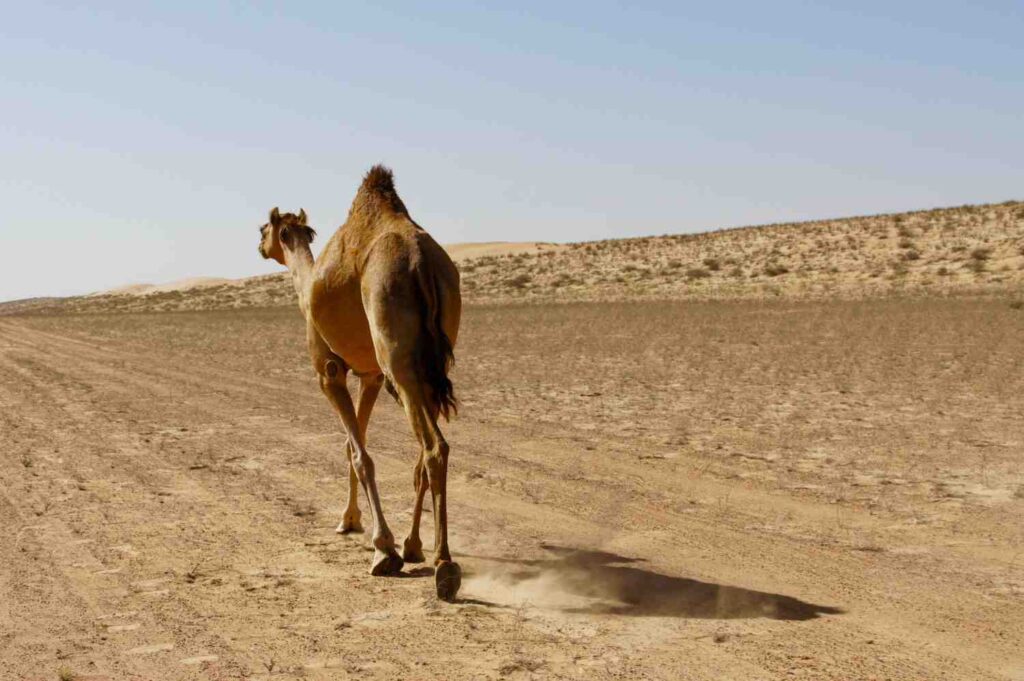
Unable to sleep, Radin wearily sat up and stepped out of the tent. The bright moonlight allowed him to take in the full night scene. All around him stretched an endless sea of sand. Small dunes rose and fell in succession, forming a pattern of light and shadow that stretched into infinity. Radin walked along the edge of this pattern, tilting his head to the sky to search for constellations, trying to figure out which direction he should take tomorrow. He knew he didn’t have much time left. He still had enough water, but he could only go hungry for about two more days at most. Before then, he had to find a place with food. If not, the next thing filling his stomach might just be Bella.
As he paced, Radin suddenly heard a faint humming sound ahead. Straining his ears, he realized it was coming from a hollow in the sand in front of him. He nodded to himself, guessing it was the “singing” of the sand. Unlike solid ground, desert sand was loose and dynamic. Any movement, big or small, beneath the desert’s surface caused the sand to shift in various directions, forming the rippled dunes people often saw. In low hollows, the sand would slide downward, rubbing against itself and producing a humming sound with a distinct melody.
Step by step, Radin approached the hollow to confirm his theory. But the closer he got, the more he realized he was wrong. It wasn’t the sand at all. It was a sound far more familiar to him—something like Bella’s voice: the call of a camel, or more precisely, a baby camel.
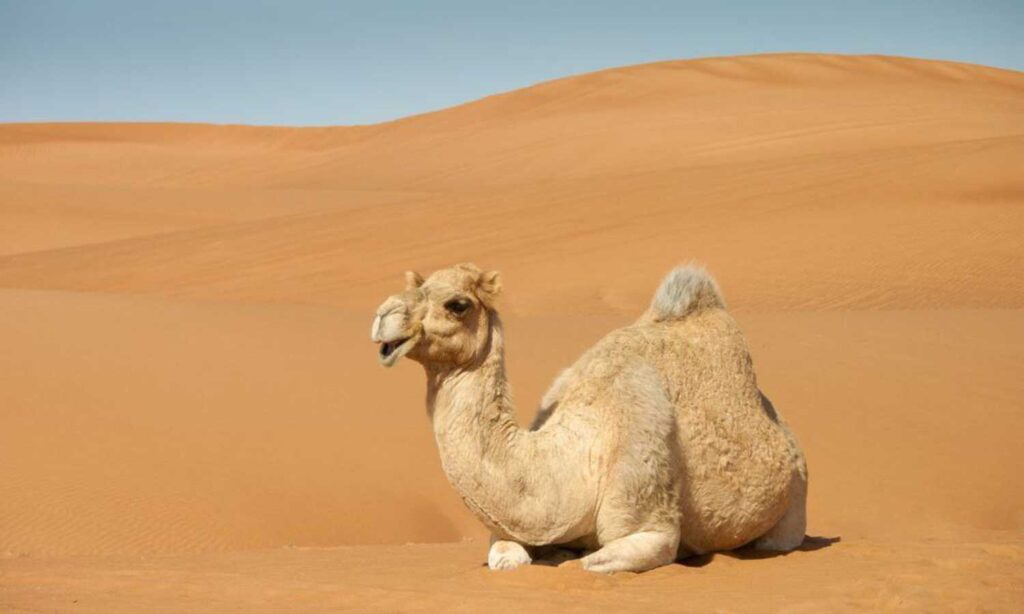
Radin’s heart leapt with excitement, his hunger momentarily forgotten. Finally, he had a chance to get close to a wild camel. He inched forward cautiously, trying not to startle the creature. Gradually, it came into view. There, in the middle of the sandy hollow, lay a small camel, curled up and alone, its mouth emitting weak, plaintive cries.
“Mom… Mom…”
Radin listened closely and understood the calf’s calls. He edged nearer. The little camel noticed him, struggled to its feet as if to flee, but quickly collapsed back onto the sand. It was clearly injured or exhausted. Radin let out a sigh of relief, grateful he wouldn’t have to chase it and worsen his own hunger.
Keeping a safe distance, Radin rumbled from deep in his throat: “Little one, it’s Mom!”
The calf tilted its head toward Radin, staring in confusion at this two-legged creature claiming to be its mother. Radin repeated the words, slowly closing the gap between them. By the time he reached the calf, it was fully convinced that Radin was indeed its mom. Radin grinned, reaching out to pat its head. The calf nuzzled into him gently.
Radin’s heart swelled with joy. At last, he’d tamed a wild camel of his own, even if it was just a frail little calf. He felt immensely proud, believing he’d proven himself worthy of his Bedouin heritage.
Only then did Radin take a closer look at the calf. It was a female. After a moment’s thought, he named her Lola. He ran his hands over her body, searching for injuries, but found none. In the end, he struggled to hoist her up, wrapping his arms around her midsection to help her stand on all four legs. Together, the boy and the limping camel made their way back to the tent. Radin realized Lola wasn’t injured—she was likely just exhausted from lack of food and water. Back at camp, he gave her a small portion of his precious water. She gulped it down in one go, her eyes visibly brightening.
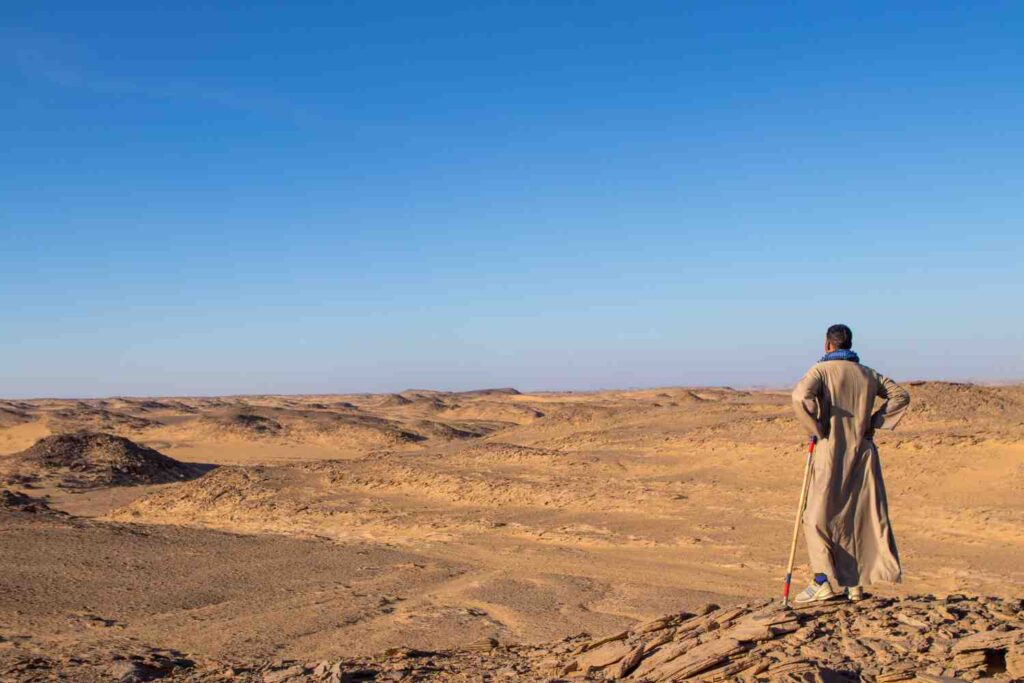
The next morning, when Radin woke and stepped outside, Lola was already up, playfully frolicking beside Bella. Radin looked at the little creature and chuckled, wondering what he’d gotten himself into. Food and water were already scarce, and now he’d taken in a motherless camel calf. He playfully patted Lola’s head: “Don’t get too happy, kid. If my stomach’s still empty in two days, there’ll be no more ‘mom’ business!”
With renewed spirits, Radin leapt onto Bella’s back and resumed his journey. With a few simple commands, he ordered Lola to follow alongside. She obeyed without hesitation, sticking close to her new family. At times, Lola lagged behind, but she’d soon come bounding back ahead.
Lola wasn’t the only stroke of luck Radin had gained from his nighttime stroll. Down in the hollow, he’d noticed faint camel tracks that hadn’t yet been erased by the wind. In the desert, footprints usually disappeared quickly, meaning Lola’s mother couldn’t have left too long ago.
Radin’s father had once taught him that wild camels, like any wild animal, had an instinct for finding food sources. The tracks he’d seen last night headed southwest, about forty-five degrees off from the westward path Radin had been following for days. This gave Radin a theory: had he veered slightly off course after leaving the oasis, leaving him stranded in this empty expanse?
He’d mulled it over all evening. Fortunately, the pondering kept his mind busy enough to distract him from his hunger, letting him fall asleep more easily. By morning, he’d made up his mind. He changed course and followed the tracks of Lola’s mother.
Years later, after winning first place with Lola in an annual camel-handling competition among nomadic tribes, Radin shared that Lola had truly been his goddess of luck that night. Not only had she led him out of the jaws of death in the desert, but she later became a vital companion, guiding him on the right paths during his journeys and crossing the desert with ease.
Radin hoped his story with Lola would inspire the next generations of Bedouin. One way or another, he wanted everyone to work together to preserve the nomadic culture of their people, a heritage stretching back thousands of years, even as modern life brought countless changes.
END
Written on February 4, 2025
More articles: https://wiladio.com



